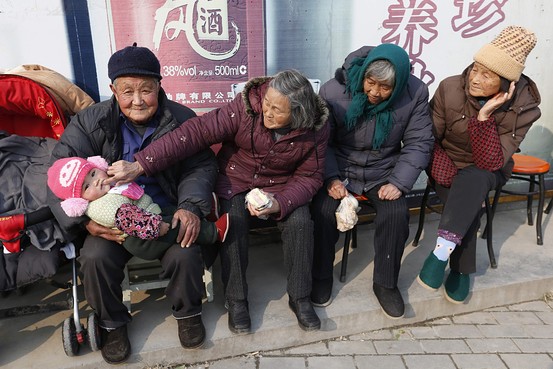A COUNTRY OF LITTLE EMPERORS
After four decades of a one-child policy, China is now facing the consequences of what was once perceived as a great economic success. To help get itself back on track economically by reducing the amount the country had to pay to feed and school children, China implemented rigid laws in the 1980’s limiting most couples to a family size of only one child. Because of a strong cultural preference for sons and a traditional belief that only a male child could support his elders, this government edict changed the course of the entire country. Not only were many first-born girls abandoned or killed in utero, many were hidden or sold by their family. Some became victims of sex and labor traffickers while others were forcibly taken by government officials and put up for sale in the very corrupt black adoption market. Consequently, these actions resulted in a society of traumatized “broken” families where the number of men strongly outweigh the number of women (in some provinces, the ratio is as unbalanced as 138:100) and a culture where the men have all the power and respect and the women are second-class citizens.
This controversial policy has also led to what is coined the “4-2-1 phenomenon”, which basically refers to a society where there is only one family member working, and that individual feels obligated to also support his two (2) parents and his four (4) grandparents. Many families in China are now facing this situation because the retirement population is starting to outgrow the working population. There are currently 180 million Chinese over age 60, and within 20 years, it is estimated that there will be more retirees in China than in the entire population of the US. Not only is there growing concern that the government will not be able to support its aging population, there is also increased pressure on the working child who feels societal responsibility to take care of the elders. Since few Chinese have saved for their retirement (i.e. “growing old before growing rich” ), most cannot afford the luxury of living in a senior residence and are forced to live with their children or their children’s children. Although many see benefits in a living arrangement comprised of many generations, there may be just as many who resent the lack of choice.
Even more interesting is a recent study conducted by the Monash University that has concluded that this one-child policy has had a significant impact on the psychological well-being of this generation. After comparing this current group to the prior generation, they have found that the children born AFTER 1979 are more pessimistic, less trusting and less conscientious. They also tend to be more neurotic and less willing to take a risk (and therefore less likely to be self-employed). Although some argue that this is a natural result when a child grows up without siblings, prior studies in the West have found little difference in personality and behavior between them and those who come from larger families. Instead, these studies have concluded that the differences arise more in families where the parents were coerced into having no more than one child.
All of this is a result of a government policy that had seemingly good intentions in the onset but managed instead to not only disrupt the natural societal plan of one of the largest countries in the world but also to have a devastating life altering outcome. Although the Chinese government has made some adjustments to their family planning policy, they are still experiencing perhaps the lowest fertility level in the world in some of the richest areas of their country. Compared to the US fertility rate of 2.08, the city of Shanghai has a birth rate of only .6. This is a shocking and depressing statistic which is certain to have profound social and economic consequences. Like most other countries, China is already experiencing a huge fiscal deficit, soaring pension expenses, and increased medical costs. With a rapid decline of the labor force fast approaching, many believe this is a ticking time bomb.
Copyright © 2013 (Michelle Parsons, Getting Back on Your Path). All Rights Reserved.


Excellent article, Michelle – predictions will be far reaching and have downward effects on the economy – who’s going to produce our now inexpensive products, produced in China – but sold into the world and largely in the U.S.
I predict that many corporations could take a look today the future impact it would bring to their bottom lines!
So glad you are happy in your Southern California location!
Warmly,
Ursula Huber Rea